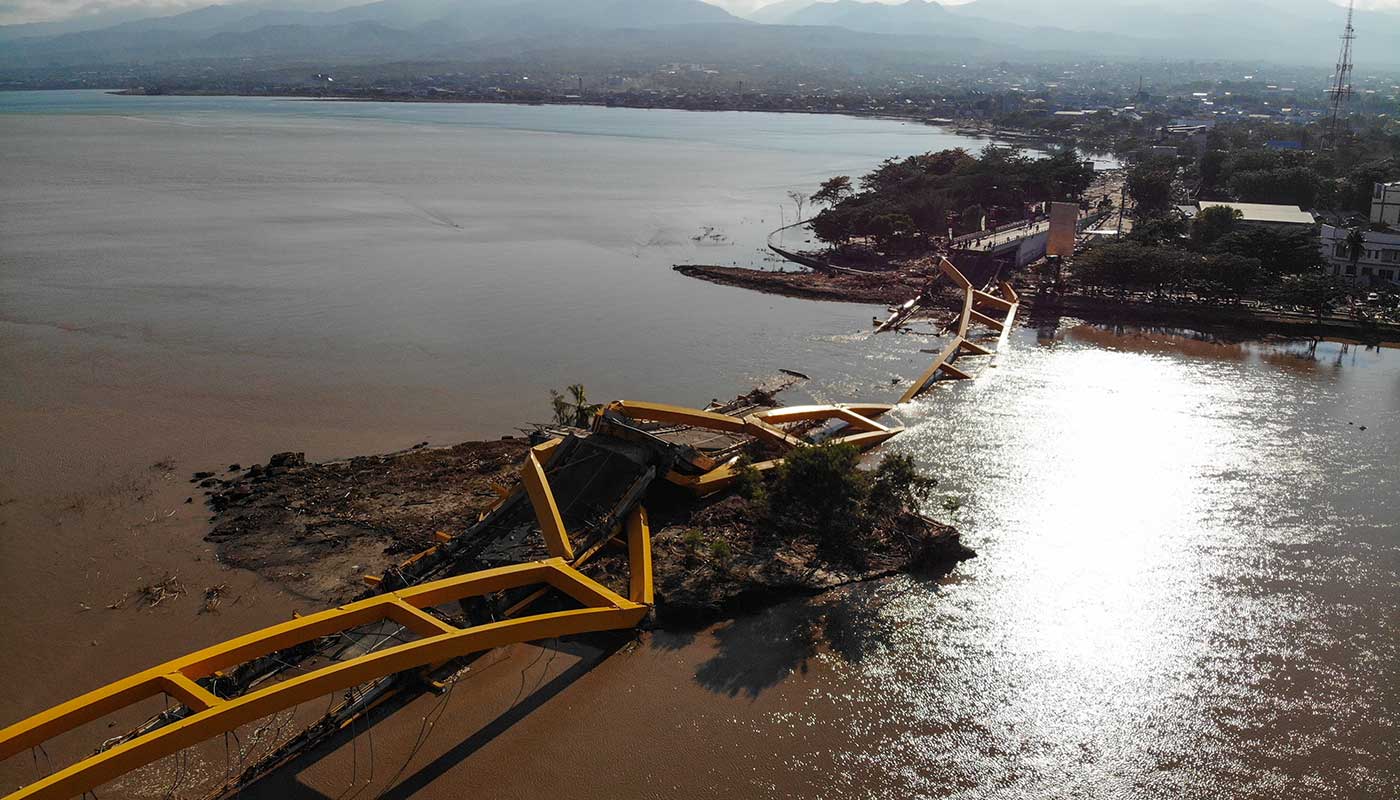Indonesian tsunami death toll rises to nearly 1,350
Authorities warn thousands more may have died as rescue operation continues

A free daily email with the biggest news stories of the day – and the best features from TheWeek.com
You are now subscribed
Your newsletter sign-up was successful
The number of people known to have died in the devastating earthquake that hit Indonesia last week has risen to 1,347, authorities have confirmed.
Rescue workers are still sifting through floodwaters and debris left in the wake of the magnitude 7.5 quake, which struck off the coast of Sulawesi on Friday, sending a tsunami up to six metres high crashing onto the island’s northern shore.
The northeastern city of Palu and the surrounding area has been worst hit, with residents facing a fifth day without adequate supplies of food and clean drinking water, CNN reports.
The Week
Escape your echo chamber. Get the facts behind the news, plus analysis from multiple perspectives.

Sign up for The Week's Free Newsletters
From our morning news briefing to a weekly Good News Newsletter, get the best of The Week delivered directly to your inbox.
From our morning news briefing to a weekly Good News Newsletter, get the best of The Week delivered directly to your inbox.
The BBC says that humanitarian relief convoys are entering the city, escorted by soldiers and police.
Local people described mudflow “rolling in like waves” in the city’s Petobo subdistrict, six miles from the shore.
An official from International Federation of the Red Cross and Red Crescent described the situation on the ground as "nightmarish”. “Thousands of families are in desperate need of food, water, shelter and medical treatment,” the aid organisation warns.
Jan Gelfand, who heads the International Red Cross delegation in Indonesia, told reporters that search and rescue efforts are being hampered by the remote location and the extent of the damage to local infrastructure.
A free daily email with the biggest news stories of the day – and the best features from TheWeek.com
“There’s a large, large need [for aid], and I don't think we've quite seen the worst of things yet,” Gelfand told CNN.
The Jakarta Post reports that as many as 2,000 people may be dead in Palu alone.
Indonesian authorities have announced that the bodies of the dead will be tagged and temporarily interred in a mass grave in the hills above the city, to prevent the outbreak of disease.
The bodies are to be dug up and given individual burials at a later date.
Indonesia’s Meteorology, Climatology and Geophysics Agency (BMKG) is facing heavy scrutiny in the aftermath of the disaster, The Guardian reports.
The BMGK is “standing by their decision to end the tsunami warning during the first hours of the earthquake”, after it lifted the warning just 34 minutes after the quake struck.
-
 The Olympic timekeepers keeping the Games on track
The Olympic timekeepers keeping the Games on trackUnder the Radar Swiss watchmaking giant Omega has been at the finish line of every Olympic Games for nearly 100 years
-
 Will increasing tensions with Iran boil over into war?
Will increasing tensions with Iran boil over into war?Today’s Big Question President Donald Trump has recently been threatening the country
-
 Corruption: The spy sheikh and the president
Corruption: The spy sheikh and the presidentFeature Trump is at the center of another scandal
-
 Epstein files topple law CEO, roil UK government
Epstein files topple law CEO, roil UK governmentSpeed Read Peter Mandelson, Britain’s former ambassador to the US, is caught up in the scandal
-
 Iran and US prepare to meet after skirmishes
Iran and US prepare to meet after skirmishesSpeed Read The incident comes amid heightened tensions in the Middle East
-
 Israel retrieves final hostage’s body from Gaza
Israel retrieves final hostage’s body from GazaSpeed Read The 24-year-old police officer was killed during the initial Hamas attack
-
 China’s Xi targets top general in growing purge
China’s Xi targets top general in growing purgeSpeed Read Zhang Youxia is being investigated over ‘grave violations’ of the law
-
 Panama and Canada are negotiating over a crucial copper mine
Panama and Canada are negotiating over a crucial copper mineIn the Spotlight Panama is set to make a final decision on the mine this summer
-
 Why Greenland’s natural resources are nearly impossible to mine
Why Greenland’s natural resources are nearly impossible to mineThe Explainer The country’s natural landscape makes the task extremely difficult
-
 Iran cuts internet as protests escalate
Iran cuts internet as protests escalateSpeed Reada Government buildings across the country have been set on fire
-
 US nabs ‘shadow’ tanker claimed by Russia
US nabs ‘shadow’ tanker claimed by RussiaSpeed Read The ship was one of two vessels seized by the US military